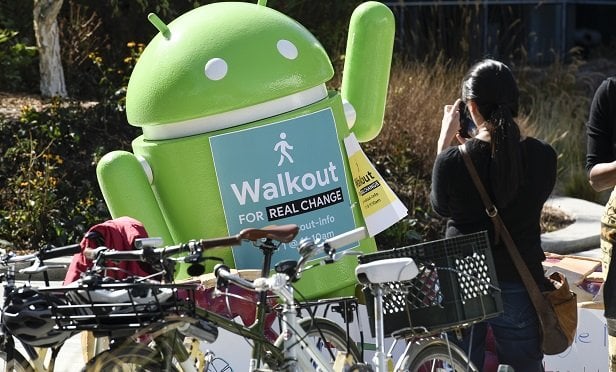 Google employees have been organizing on several fronts, including workplace harassment, the treatment of contract workers and what kind of work the company does for government and military groups. (Photo: Michael Short/Bloomberg)
Google employees have been organizing on several fronts, including workplace harassment, the treatment of contract workers and what kind of work the company does for government and military groups. (Photo: Michael Short/Bloomberg)
After months of worker protests, Alphabet Inc.'s Google will stop making its employees sign away their right to bring claims against it in court.
Google stopped so-called forced arbitration in cases of sexual harassment and assault last year after 20,000 workers walked out to oppose how the search giant handles internal complaints. That wasn't enough for some of the employees, who kept pressing the company to end the practice altogether. Google will do that on March 21, a spokeswoman said on Thursday. The company will also cease enforcing agreements that waived workers' right to bring their claims as class actions.
Recommended For You
Complete your profile to continue reading and get FREE access to BenefitsPRO, part of your ALM digital membership.
Your access to unlimited BenefitsPRO content isn’t changing.
Once you are an ALM digital member, you’ll receive:
- Breaking benefits news and analysis, on-site and via our newsletters and custom alerts
- Educational webcasts, white papers, and ebooks from industry thought leaders
- Critical converage of the property casualty insurance and financial advisory markets on our other ALM sites, PropertyCasualty360 and ThinkAdvisor
Already have an account? Sign In Now
© 2025 ALM Global, LLC, All Rights Reserved. Request academic re-use from www.copyright.com. All other uses, submit a request to [email protected]. For more information visit Asset & Logo Licensing.








